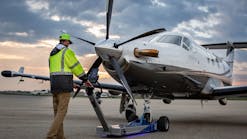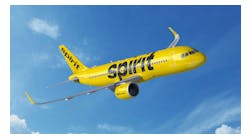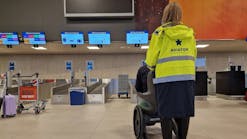In a move reminiscent of the battle over the Wright Amendment, American Airlines executives say they might move their Seattle operation to Boeing Field if rival Southwest Airlines opens that airport to commercial service.
American, Southwest and other carriers now operate from Seattle-Tacoma Airport. But earlier this year, Dallas-based Southwest floated the idea of moving to Boeing Field, a smaller airport that does not serve commercial traffic.
Southwest complained that the cost of operating at Sea-Tac will become prohibitive by the end of the decade because of a costly expansion. Southwest has offered to spend $130 million on an eight-gate terminal and parking lot at Boeing Field solely for its own passengers, and it estimates that it could have as many as 80 daily flights there.
But other airlines fear that Southwest, the nation's largest low-fare carrier, would have an advantage at Boeing, which is closer to downtown Seattle. Alaska Airlines, the largest carrier in Seattle, has warned that it would seek to move 100 daily flights to Boeing Field to compete.
Officials with Fort Worth-based American said they would follow suit.
"We don't wish to get involved at Boeing," American spokesman Tim Smith said. "But if that airport opened up and customer preference became a factor, we would be required for competitive reasons to move there."
Southwest officials said they weren't worried about extra competition at Boeing. "We have competitors everywhere we fly," spokesman Ed Stewart said.
Boeing Field is much smaller than Sea-Tac and could hold a maximum of 13 passenger gates. Sea-Tac, by comparison, has about 90 gates. One gate can generally sustain about 10 flights per day.
American and Southwest are relatively small players in Seattle, with 6 percent and 9 percent of the market, respectively. Alaska is the largest airline, with about 35 percent of the market.
The Seattle issue mirrors an ongoing debate in North Texas about the Wright Amendment, a 1979 law that restricts service at Dallas Love Field to states that border Texas, as well as to Alabama, Kansas and Mississippi.
Southwest, which operates solely from Love in North Texas and has refused to offer service at Dallas/Fort Worth Airport, wants the law repealed. Southwest officials say larger D/FW does not fit their business model, which favors smaller, alternative airports.
American executives have threatened to try to move hundreds of flights from D/FW to Love if the amendment is repealed. That, they say, could damage D/FW's finances and result in the loss of nonstop flights to many cities, including international destinations.
Several bills on the issue have been filed in Congress this year, but most observers say a repeal is unlikely before the end of 2005. A measure that would exempt Missouri from the restrictions may become law, which would allow Southwest to serve St. Louis and Kansas City with nonstop flights from Love.
"That would be the first real crack" in the Wright Amendment, Stewart said.
Copyright 2005 Associated Press




